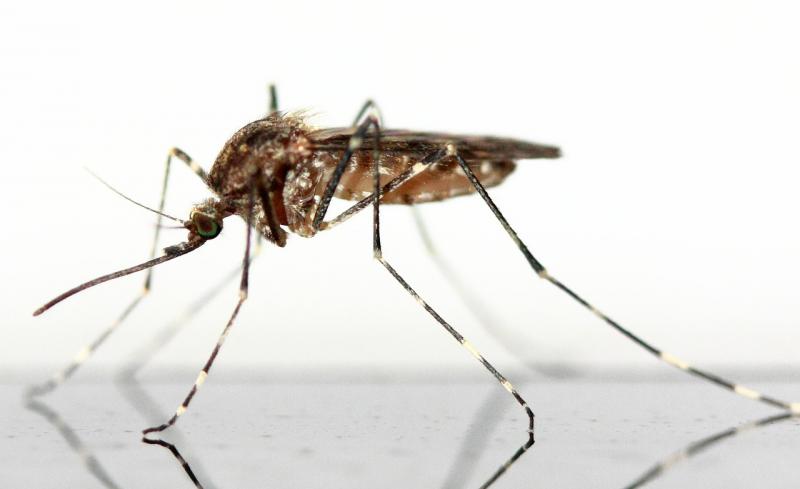State to begin aerial mosquito spraying on August 10
The state will be conducting aerial mosquito spraying beginning on Monday, August 10, and continuing for several nights, dependent on weather conditions.
Wareham will be sprayed along with 24 other towns in Plymouth and Bristol Counties.
Officials will monitor the results of the spray, and a second round of spraying is possible as part of the state’s effort to prevent the spread of Eastern Equine Encephalitis, a rare but serious and potentially fatal disease spread through mosquito bites.
So far, one boy under the age of 18 has been infected in Plymouth County -- the first case in Massachusetts this year. Last year, 12 people contracted the disease and six people died from it.
A mosquito found in Wareham was positive for EEE, the state announced on August 5.
“EEE is rare, but it is a serious medical illness, and we remind residents of the need to protect themselves from mosquito bites as EEE activity increases,” said Public Health Commissioner Monica Bharel, MD, MPH. “The best prevention continues to be using mosquito repellent, wearing long sleeves and pants, weather permitting, and avoiding outdoor activity between the hours of dusk and dawn in the highest risk areas.”
The pesticide used by the state for aerial spraying is called Anvil 10+10, an EPA-approved product which is effective at killing mosquitoes and degrades rapidly in the air, on plants, or in the soil. There are no health risks associated with spraying, but residents can reduce exposure by staying indoors if they would like to.
Spraying is conducted at night when honeybees are most likely to be in their hives and fish are less likely to be feeding at the surface of the water. Those with small ornamental fish ponds are advised to cover the ponds during the night of spraying.
For a detailed map of the locations where spraying will take place, go to https://massnrc.org/spray-map/Region/List.
Aerial spray reduces the risk to humans, but officials say taking other precautions is still very important.
Officials recommend applying insect repellent before going outside. Approved repellents include DEET (N, N-diethyl-m-toluamide), permethrin, picaridin (KBR 3023), IR3535 or oil of lemon eucalyptus [p-methane 3, 8-diol (PMD)] according to the instructions on the product label.
Wearing long-sleeves, long pants, and socks outdoors can also reduce the risk of bites.
The peak hours for mosquitos are between dusk and dawn, so people should be extra cautious at those times.
To mosquito-proof one’s home, drain standing water to prevent mosquito breeding and install or repair screens to keep mosquitoes from coming inside the house.
Plymouth County Mosquito Control conducts spraying from trucks to prevent mosquitoes.
The County sprays from a pick-up truck, and, by law, can only spray the homes of those who request it. So, not every home on the streets listed will be sprayed.
Sprayers are ultra-low volume and located in the back of a pick-up truck. Weather permitting, the trucks operate from 2 a.m. to about a half hour before sunrise.
Residents who would like their homes to be sprayed can call up to eight times per season. The spray kills mosquitoes, but does not prevent them from returning.
To request a spray, call 781-585-5450 from 7:30 a.m. to 2:30 p.m., Monday through Friday. Requests can also be submitted by mail to 272 South Meadow Road, Plymouth, MA, 02360, or by fax to 781-582-1276. Residents submitting a request by mail or fax should include their name, address, phone number, and email address.
For a list of the streets to be sprayed, go to www.plymouthmosquito.org/spray-routes-for-adult-mosquito-control.html.















